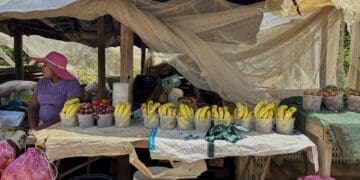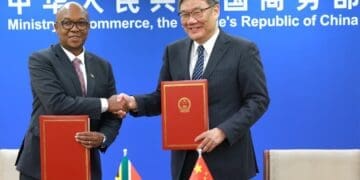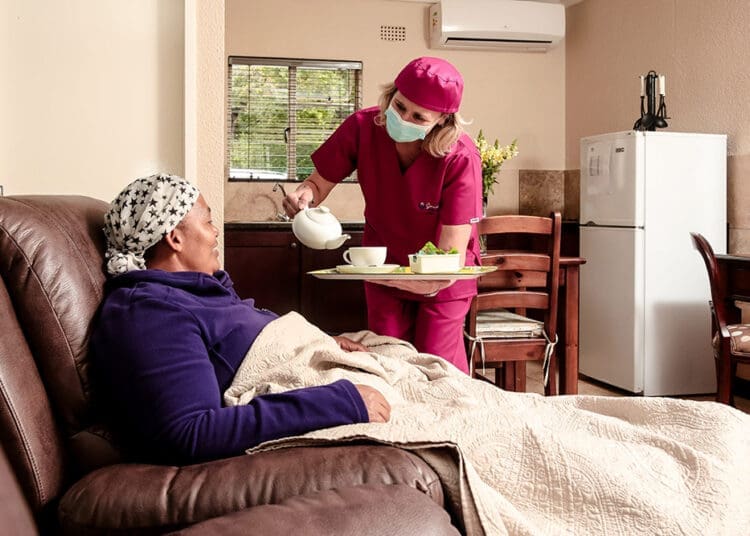South Africa’s growing reputation as a hub for specialised medical care and wellness travel is opening new opportunities for small businesses, especially recovery lodges that provide non-clinical, patient-centred aftercare.
Sunninghill Recovery Lodge offers holistic, guest-centred recovery in a serene environment, with empathetic staff and restful facilities, conveniently located near Netcare Sunninghill Hospital and Sunninghill Medical Centre in Sandton.
According to Ann-Magret McKerrell, the CEO of the lodge, the rise in medical travelers seeking trusted spaces for healing has strengthened both the lodge’s business and its international partnerships.
“Our recovery lodge, as well as our palliative centre has benefited from the trust placed in us by medical and wellness travellers,” McKerrell said. “This trust has strengthened our relationships with international medical insurance companies, who now regularly refer patients in need of surgical recovery or compassionate end-of-life care from across Africa.”
She added that word-of-mouth remains one of the most powerful drivers of their business, especially among patients visiting the same specialists.
“Our end-of-life care facility has also become a sought-after destination because few places in Africa offer truly holistic and dignified support during the final phase of life,” she said.
The Medical Tourism Association of South Africa (MedTASA) noted that South Africa is increasingly being recognised as a strong contender in the global market, ranking 22nd out of 46 medical tourism destinations.
The association highlighted the country’s internationally accredited private hospitals, cost advantages of 30%–70% compared to Western markets, and a growing patient base from West Africa and the Middle East. These factors make recovery facilities an essential part of the ecosystem since international patients seldom travel alone and often require extended stays.
However, despite the opportunities, McKerrell said the sector faces several challenges, particularly those affecting SMEs.
“Operating in such a specialised and niche field, it has taken us nearly three decades to build trusted relationships with overseas partners and local families,” she said.
One of the biggest hurdles is the migration of skilled carers to countries offering higher salaries, a trend also flagged by MedTASA as a risk to South Africa’s competitiveness.
Maintaining reliable infrastructure is another pressure point. McKerrell said running a healthcare facility requires substantial investment in secure and reliable infrastructure, such as uninterrupted water and power supplies, given ongoing service disruptions. These added costs make it harder for small facilities to remain price-competitive despite the growing demand for affordable treatment and recovery services.
Dineo Nkitle, founder and managing director of Medi & Tours South Africa, said small businesses are central to medical tourism even though their contributions are often overlooked.
“Guesthouses, recovery lodges, patient transport providers, wellness centres, and travel coordinators contribute to the overall patient experience,” she said. “When properly linked to hospitals and facilitators, SMEs can benefit through increased bookings, longer stays, and repeat clients.”
Nkitle believes South Africa has strong potential, but the industry needs structure and coordination to compete with global leaders.
“South Africa has world-class medical professionals and accredited hospitals, but there is no integrated strategy that connects healthcare providers, travel agents, accommodation facilities, and government tourism bodies,” she said.
This gap is echoed by MedTASA, which has been advocating for a more coordinated national framework that supports ethical standards, accreditation, and better collaboration between public and private partners.
McKerrell told Vutivi Business News that support for SMEs remains limited.
“Navigating the licensing process with the health department is slow and frustrating, and relief programmes such as UIF and TERS have not been effective for us,” she said.
“What would help most are streamlined administrative processes, staff training and retention programmes, and better collaboration between public and private partners.”
Despite the obstacles, both Nkitle and McKerrell believe the sector can grow meaningfully with the right support.
Research from IMARC Group estimates that the South African medical tourism market, valued at US$648 million in 2024, could exceed US$3.1 billion by 2033.
Sunninghill Recovery Lodge’s mission goes beyond business. McKerrell said that rising healthcare costs in South Africa have revealed an urgent gap in access to palliative care.
“We have seen the need in our own country for good palliative care for the uninsured and therefore assist 20% of our patients free of charge,” she said.
The lodge has also established an NGO to formalise its community-support efforts. “We love that we can give back.”
With a growing international patient base, South Africa’s strong clinical reputation, and networks like MedTASA, SMEs in the medical-tourism value chain are increasingly positioned to drive economic opportunities while delivering the compassionate, dignified patient experiences that travellers are seeking.































































